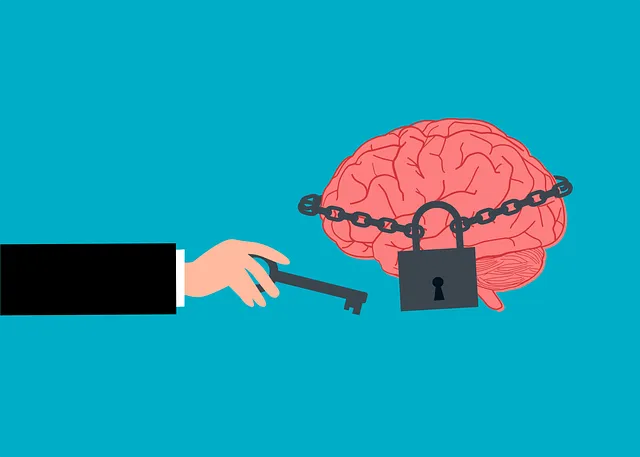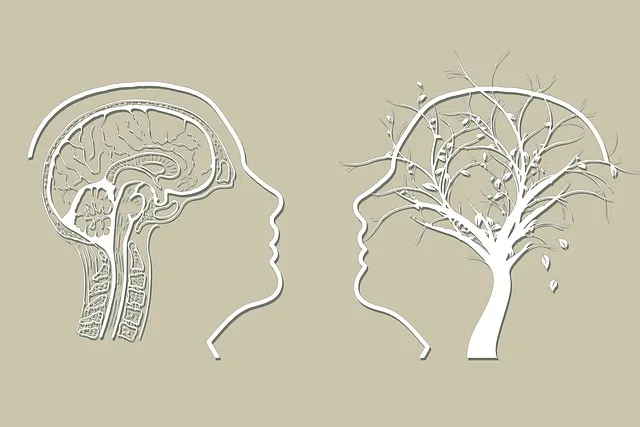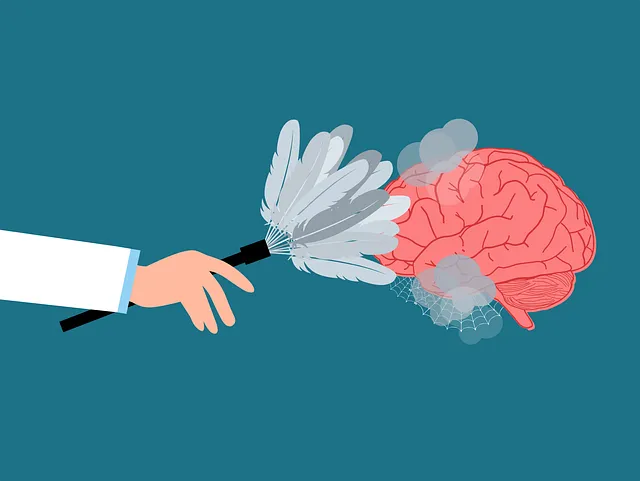In today's stressful world, mental wellness is vital. Kaiser offers specialized inpatient mental health services at Wheat Ridge, focusing on evidence-based treatments and Compassion Cultivation Techniques. Their programs meet the growing need for accessible support outside traditional care with tailored coaching that uses Stress Reduction Methods, CBT, mindfulness, and gratitude exercises to build resilience. Combining digital tools and community partnerships, these programs aim to revolutionize mental wellness coaching through online platforms, virtual reality, and AI monitoring, while fostering early intervention and stigma reduction.
Mental wellness coaching programs are gaining prominence as integral components of holistic healthcare, especially with organizations like Kaiser offering comprehensive services. This article delves into the development and importance of such programs, focusing on Kaiser’s inpatient mental health services at Wheat Ridge as a case study. We explore key components, implementation strategies, and future directions for these game-changing initiatives, highlighting their potential to revolutionize mental health support.
Understanding the need for such programs is essential, especially with the rise in mental health challenges globally.
- Understanding the Need for Mental Wellness Coaching Programs
- Exploring Kaiser's Inpatient Mental Health Services at Wheat Ridge
- Key Components of an Effective Mental Wellness Coaching Program
- Implementation Strategies and Future Directions for Such Programs
Understanding the Need for Mental Wellness Coaching Programs

In today’s fast-paced world, mental wellness is an increasingly important aspect of overall health, especially considering the rise in stress and anxiety disorders. This has prompted many organizations, including Kaiser, to offer inpatient mental health services at facilities like Wheat Ridge. However, beyond these traditional healthcare settings, there’s a growing need for accessible and personalized support – this is where Mental Wellness Coaching Programs Development steps in. These programs cater to individuals seeking to enhance their coping skills and develop resilience in managing daily stressors.
By integrating various Stress Reduction Methods, these coaching programs empower participants with effective tools to navigate life’s challenges. They are designed to be inclusive and flexible, ensuring that each individual receives tailored guidance aligned with their unique needs. As a result, Mental Wellness Coaching Programs Development plays a pivotal role in promoting not just the recovery from mental health issues but also in fostering overall well-being.
Exploring Kaiser's Inpatient Mental Health Services at Wheat Ridge

Kaiser’s Inpatient Mental Health Services at Wheat Ridge offer a comprehensive approach to addressing mental wellness challenges. With dedicated facilities designed for intensive care, individuals experiencing severe or acute mental health issues can receive expert treatment and support in a safe and structured environment. The program focuses on individualization, utilizing evidence-based practices tailored to each patient’s unique needs. This includes incorporating Compassion Cultivation Practices, which have been shown to enhance resilience and foster a sense of calm.
Through specialized therapy sessions, mindfulness exercises, and Stress Reduction Methods, patients engage in an immersive process aimed at healing and recovery. The inpatient setting allows for close monitoring and rapid intervention when needed, ensuring that individuals receive the highest level of care. Moreover, Kaiser’s Wheat Ridge location also plays a pivotal role in public awareness campaigns development, promoting understanding and destigmatization around mental health concerns within the community.
Key Components of an Effective Mental Wellness Coaching Program

An effective mental wellness coaching program, such as those offered by facilities like Kaiser’s inpatient mental health Wheat Ridge, should incorporate several key components to ensure impactful and lasting results. Firstly, Positive Thinking techniques are integral, teaching clients strategies to reframe negative thoughts and cultivate optimism. This includes mindfulness practices, cognitive-behavioral therapy (CBT) techniques, and gratitude exercises.
Secondly, Self-Care Practices are essential for maintaining mental wellness. Coaching programs should equip individuals with tools for stress management, healthy lifestyle habits, and effective time management. Additionally, Burnout Prevention Strategies for Healthcare Providers can be tailored to the needs of medical professionals, who often face unique challenges in their field. By combining these components, mental wellness coaching programs create a supportive environment that fosters resilience, self-awareness, and long-term mental health improvement.
Implementation Strategies and Future Directions for Such Programs

The development of mental wellness coaching programs, such as those offered by Kaiser’s inpatient facilities at Wheat Ridge, presents a promising approach to enhancing emotional regulation and mood management among individuals seeking support. As these programs gain traction, future implementations can be guided by innovative strategies that leverage technology for remote coaching, making services more accessible and cost-effective while maintaining high-quality care. This digital shift could include online platforms with personalized resources, virtual reality sessions for immersive experiences, and artificial intelligence to monitor progress and provide tailored interventions.
Moreover, integrating community outreach programs into these models can foster a holistic mental health support system. By collaborating with local organizations, schools, and workplaces, coaches can facilitate early intervention, reduce stigma, and ensure continuity of care. This comprehensive approach, combining digital innovations and community partnerships, holds the potential to revolutionize how we deliver and access mental wellness coaching, ultimately improving outcomes for individuals across diverse settings.
Mental wellness coaching programs, as exemplified by Kaiser’s inpatient services at Wheat Ridge, play a pivotal role in enhancing individuals’ mental health and overall well-being. By integrating key components such as personalized coaching, evidence-based practices, and supportive environments, these programs offer sustainable solutions for managing and improving mental health. As we look to the future, implementing these strategies widely and continually evaluating their effectiveness will ensure that mental wellness coaching remains a vital resource in addressing the growing need for accessible, quality mental healthcare.






